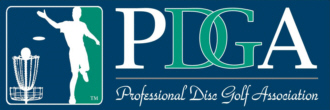
The Professional Disc Golf Association (PDGA) has compiled a calendar of its upcoming events. The calendar, which runs through the end of 2013, is available at the site, http://www.pdga.com/
In addition, because PDGA recently finished accepting bids for its 2015 Masters events, more information on upcoming tournaments can be expected on the schedule.
About Disc Golf: Disc golf is played much like traditional golf. Instead of a ball and clubs, however, players use a flying disc, or Frisbee®. The sport was formalized in the 1970's, and shares with "ball golf" the object of completing each hole in the fewest number of strokes (or, in the case of disc golf, fewest number of throws). A golf disc is thrown from a tee area to a target which is the "hole". the hole can be one of a number of disc golf targets; the most common is called a Pole Hole® an elevated metal basket. As a player progresses down the fairway, he or she must make each consecutive shot from the spot where the previous throw has landed. The trees, shrubs, and terrain changes located in and around the fairways provide challenging obstacles for the golfer. Finally, the "putt" lands in the basket and the hole is completed. Disc golf shares the same joys and frustrations of traditional golf, whether it's sinking a long putt or hitting a tree halfway down the fairway. There are few differences, though. Disc golf rarely requires a greens fee, you probably won't need to rent a cart, and you never get stuck with a bad "tee time." It is designed to be enjoyed by people of all ages, male and female, regardless of economic status.
Disc Golf Demographics: Disc golf can be played from school age to old age, making it one of the greatest lifetime fitness sports available. Specially-abled and disabled participate, giving them the opportunity to take part in a mainstream activity. Because disc golf is so easy to learn, no one is excluded. Players merely match their pace to their capabilities, and proceed from there. The Professional Disc Golf Association, with a member base of 40,000+, is the governing body for the sport and sanctions competitive events for men and women of every skill level from novice to professional. Permanent disc golf courses are found in countries worldwide.
Course Locations: Many city parks have golf courses already set up. Most are free to play as often as you like. Disc golfers who do not have the benefit of a permanent disc golf facility in their area often "make up" courses in nearby parks and green spaces. One of the great features disc golf shares with traditional golf is that they are both played in beautiful settings. A nine-hole disc golf course can be established on as little as five acres of land, and a championship-caliber 18-hole course on 30 to 40 acres. Disc golf courses can coexist with existing park facilities and activity areas. The ideal location combines wooded and open terrains, and a variety of topographical change.
The need for more courses is constant, as the sport continues to grow in popularity. The PDGA has created resources for the design and installation of new golf courses, to ensure their success in the community.
The PDGA also publishes and sells an annual course directory, and manages and maintains a free online directory of disc golf courses at http://www.pdga.com/course-directory.
About PDGA: The Professional Disc Golf Association, with a member base of 40,000+, is the governing body for the sport and sanctions competitive events for men and women of every skill level from novice to professional. Permanent disc golf courses are found in countries worldwide. Information on the organization, as well as on the sport, can be found at http://www.pdga.com/

There are no comments
Please login to post comments